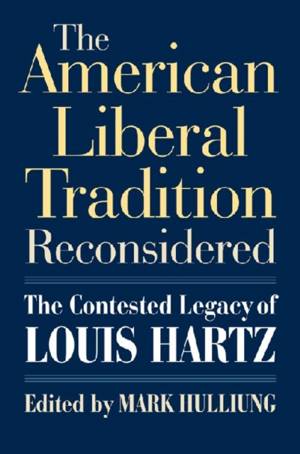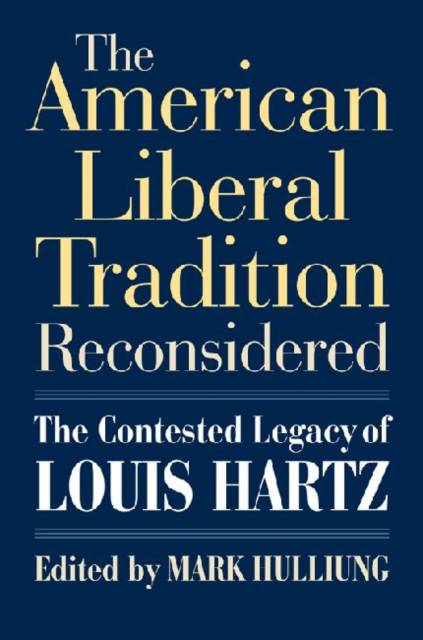
- Retrait gratuit dans votre magasin Club
- 7.000.000 titres dans notre catalogue
- Payer en toute sécurité
- Toujours un magasin près de chez vous
- Retrait gratuit dans votre magasin Club
- 7.000.0000 titres dans notre catalogue
- Payer en toute sécurité
- Toujours un magasin près de chez vous
84,95 €
+ 169 points
Description
Once upon a time in America, Herbert Hoover accused Franklin D. Roosevelt of usurping the coveted label "liberal." Nowadays, Republicans have so successfully stigmatized the word that even Democrats run from it. But in 1955, Louis Hartz offered perhaps the most famous interpretation of American history of the second half of the twentieth century in his book The Liberal Tradition in America, to which students of American political culture have found themselves returning time and again over the last several decades. Hartz argued that America is inherently liberal, since it lacked a feudal heritage, was born middle class, and consequently did not develop either a strong conservative or socialist movement. Liberalism's Lockean outlook was America's one and only political philosophy, he believed. In this new book, eight prominent scholars consider whether Hartz's analysis should be repudiated or updated and whether a study of America as a "liberal society" is still a rewarding undertaking. Offering their own respective understandings of the significance of The Liberal Tradition in America in the worlds of yesterday and today, they reassess the Hartzian legacy after half a century while also addressing the triumphs, failures, trials, and tribulations of liberalism in America. These eight distinguished scholars offer insights that are often critical of Hartz, representing a plurality of viewpoints that suggest no definitive conclusion as to the status today of his famous book. But although some may judge Hartz's work as misguided, they affirm that his concern for the fate of liberal society is still with us. These stimulating essays will reward all readers who seek a better understanding of both the Hartzian legacy and America's brand of liberalism today. More than just engaging with Hartz, they bring their own views of the American liberal tradition to the fore.
Spécifications
Parties prenantes
- Auteur(s) :
- Editeur:
Contenu
- Nombre de pages :
- 286
- Langue:
- Anglais
- Collection :
Caractéristiques
- EAN:
- 9780700617081
- Date de parution :
- 28-04-10
- Format:
- Livre relié
- Format numérique:
- Genaaid
- Dimensions :
- 160 mm x 234 mm
- Poids :
- 589 g

Les avis
Nous publions uniquement les avis qui respectent les conditions requises. Consultez nos conditions pour les avis.






